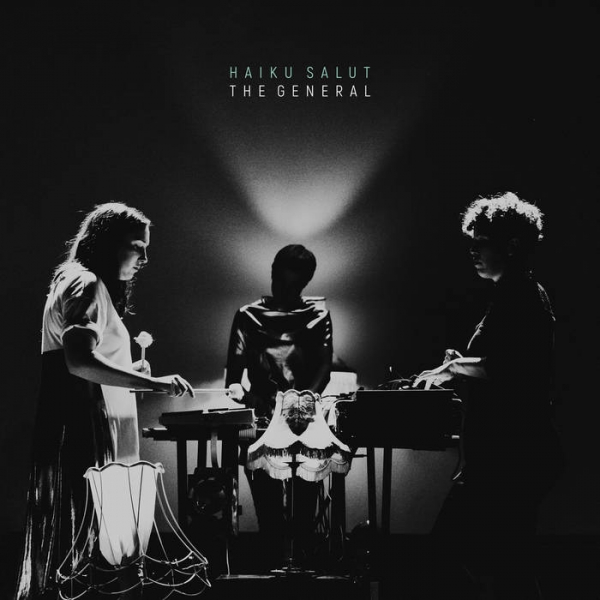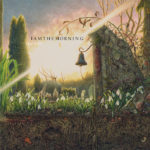There are few bands who say things better without words than Haiku Salut. Their three albums to date have shown a steady progression from stuttering folktronica to glitchy ambience, and their latest release, a soundtrack to the 1926 Buster Keaton silent film of the same name, is a step further from their roots. The General was written with live performance in mind, specifically live performance with the film projected with equal focus. This meant that the band had to dispense with much of their usual instrument-swapping antics. If you’ve seen Haiku Salut live you’ve no doubt marveled at the way they move effortlessly between accordion, guitar, synthesizer, live drums, trumpet. Here they have consciously stripped their sound right back, aware of not only the practicality of moving from one instrument to another without missing visual cues but also the distraction for an audience of doing so. It leaves us with the bare bones of guitar, piano and electronics. Where previously it could be argued that the acoustic instruments gave the band the “human” heart that makes them stand out from the post-rock crowd, here it’s clear that that’s never been the case. Haiku Salut have always been about more than their auditory quirks and the busy-ness of their live show. It’s their songwriting that shines through.
It certainly makes The General more sparse than their previous work, but in the same way that Aphex Twin‘s Selected Ambient Works are more sparse than his other material. That’s a comparison most artists would struggle with, but then most artists would struggle to successfully soundtrack such an iconic silent comedy. Haiku Salut succeed by focusing on the emotional core of the film rather than the humour. ‘Train Steal’ emerges, flickering from a bed of synth before a drum machine cleverly describes the movement of the train that the film is named after, the synths eventually dropping away leaving just the beat propelling us along. ‘Cannon’ uses a reverberating drum pattern to replicate the sound of the Confederate army’s weapons. ‘Reunited’ drips with emotion while ‘The Escape’ uses backwards guitar and shuffling beats to narrate Keaton’s character running away with his fiancee.
It’s not just a record of technical cleverness though. ‘Enlist’ is an early standout, a repeating piano phrase serving as a beacon in the otherwise austere ambience. The central triple header of‘Traction’, ‘Chopping Wood Arrive’ and ‘Hide’ would be a standout triplet on any ambient album you cared to listen to this year, with ‘Traction’‘s stuttering beats and throbbing synths, ‘Chopping Wood Arrive’‘s shimmering glow and ‘Hide’ bringing an almost techno rhythm. ‘Obstruction’ wouldn’t be out of place on an early Oneohtrix Point Never record. ‘Going Back’ is probably the most blissed-out moment, growing from jagged arpeggios into floating choral synths and plucked guitar.
While the longer tracks catch the ear on first listen, as ideas are allowed to develop and blossom into a fuller sounding track, it’s the shorter pieces that give The General its distinct character. The flickering, barely there, seconds-long likes of ‘Chattanooga’, ‘Deserters’ and ‘The Crash’, not to mention the way the shimmering ‘Engine’ makes a reappearance as ‘Engine Again’ towards the end of the record really flesh the album out, giving life to the greater whole and to Keaton’s achievement beyond the screen. This isn’t just a great soundtrack, it’s an incredible ambient album to get lost in time and time again. Where Haiku Salut go from here is anyone’s guess, but one thing’s for certain: The General is an essential entry in their discography and not to be overlooked.
The General is out now on Secret Name.




